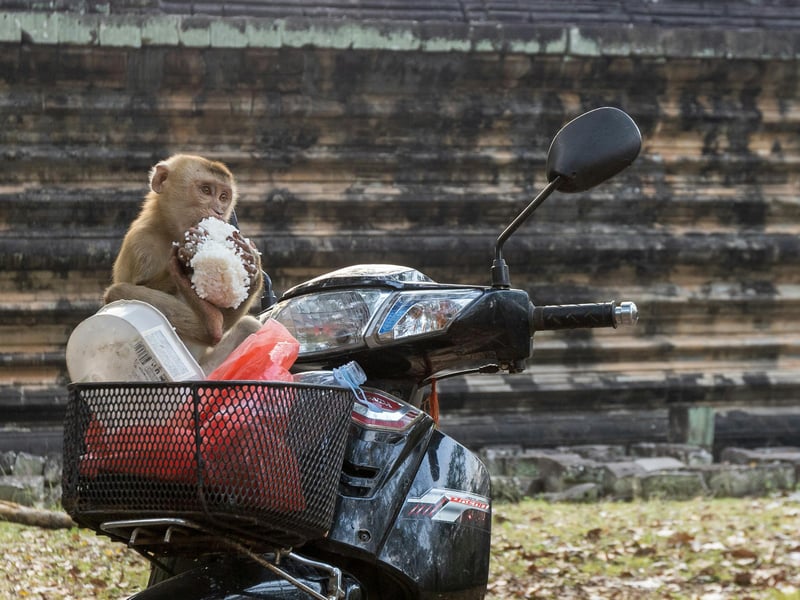Stay in Thailand! Get your DTV Visa →
Thailand is home to a significant number of monkeys, making them an unforgettable part of any visit. If you’re traveling through the country, you’re almost guaranteed to encounter these cheeky creatures. The Thai word for monkey is ling (ลิง)—an essential word to remember when discussing them with locals or navigating areas where monkeys roam freely.
Guaranteed, "done for you", Thailand Visa & Planning services.

Travelers often have amusing or frustrating tales about their run-ins with monkeys. These creatures are notoriously clever, and their boldness can catch even the most seasoned adventurer off guard. Whether it’s a monkey snatching snacks from your hands or stealing a hat right off your head, they’ve earned a reputation for being both entertaining and a little rude.
In some areas, measures have been taken to deal with overly aggressive monkeys. Don’t be surprised if you spot locals armed with slingshots or air-guns—not to harm the monkeys, but to scare them away and protect their belongings.
Monkeys, especially in urban areas, are known to snatch things from unsuspecting tourists. But why do they do it? Here are a few reasons:
Lopburi is arguably the monkey capital of Thailand. Here, the monkeys are more than just a tourist attraction—they’ve become an integral (and sometimes problematic) part of the city. They form gangs, complete with leaders and followers, often causing chaos in their quest for food and territory.
Despite the challenges, Lopburi embraces its monkey population. The city hosts the annual Monkey Buffet Festival, where tables piled with fruits and treats are laid out as an offering to these fascinating creatures. If you’re visiting, historical sites like Phra Prang Sam Yod and the old town area are hotspots for monkey activity.
If you’re keen to observe monkeys in their natural habitat, Thailand has plenty of places to explore:
Monkeys are curious and opportunistic. If you’re carrying small items like phones, sunglasses, or snacks, keep them secure. A monkey stealing your 40,000-baht iPhone may seem funny until it’s gone for good! Here are some tips to stay safe around monkeys:
If you’d like to visit these monkey hotspots with a knowledgeable city helper, we’re here to make your trip worry-free. Our guides ensure you enjoy your adventure while keeping your belongings safe from mischievous monkeys. Click the lin here to see their profiles.
Thailand’s monkeys are a mix of mischief, humor, and charm, making them a must-see for travelers. Whether you’re feeding them in Lopburi or spotting them in Krabi, your experience with these playful creatures is sure to be memorable.
Bring your Family to Thailand Service - Legally and Long Term
Business Visa and Work Permit Service in Thailand
Don't get kicked out of Thailand! Get your DTV Visa.
Immigration Service for Expats Living in Thailand
Marriage Visa or Child Visa Service for Thailand
Thailand Retirement Visa Service
Thailand Tourist Visa Application Service
Tourist Visa to Long-Term Visa Conversion Service in Thailand